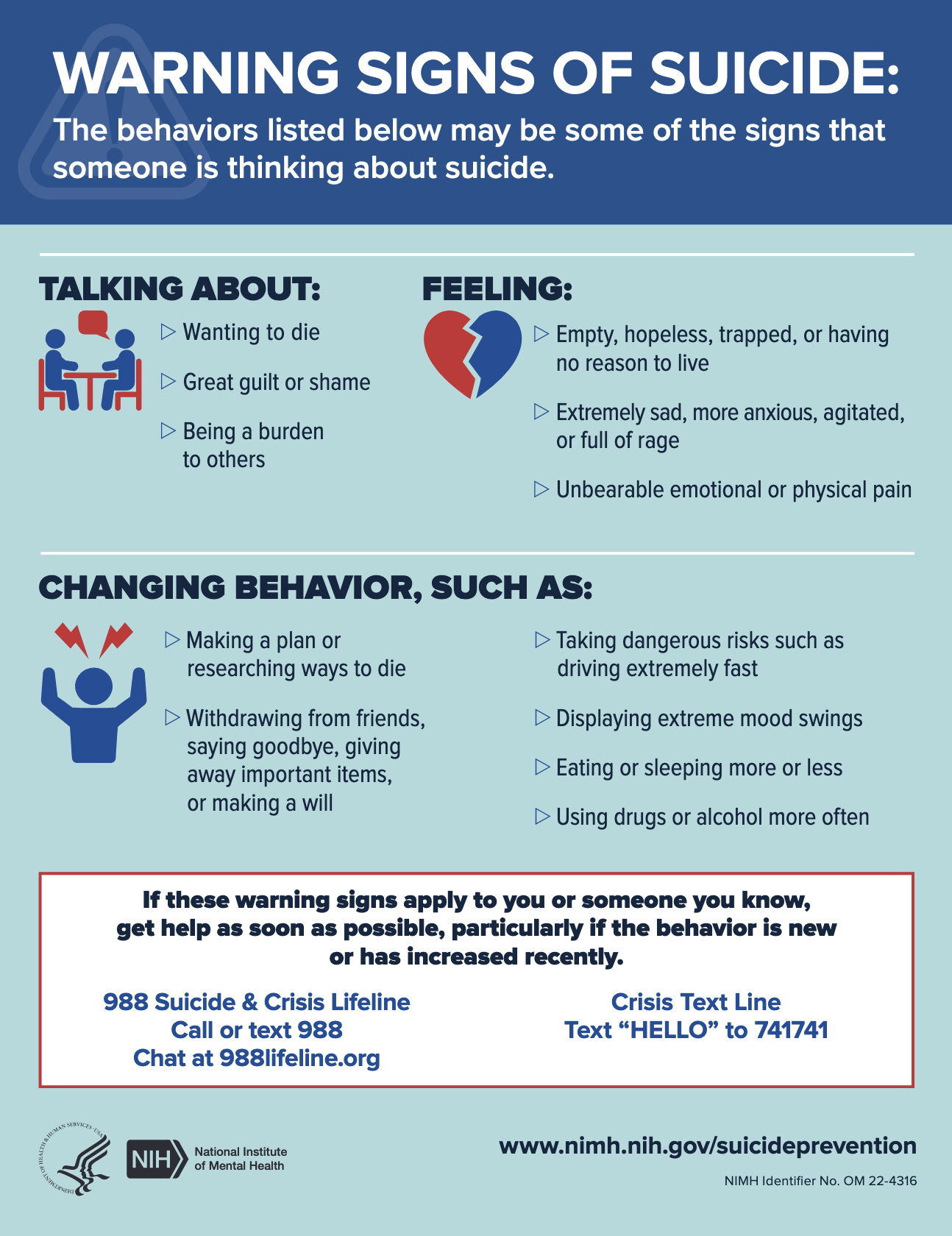What to Do if You’re Worried About Suicide – A Parent’s Guide
What do you do when you’re worried that a child might be feeling suicidal? Nadine Kaslow, PhD, psychologist and former President of the American Psychological Association, provides guidance to parents on the best ways to support a child who is in distress. The following 10 recommendations are excerpted from Kaslow’s article, “What to Do if You’re Worried About Suicide,” on the Child Mind Institute website.
Show the love
It may seem obvious to you that you love your children, and that they know you love them. But when they’re having a hard time, kids need to hear over and over again from you how much you love them, and how much you care about them.
Express empathy
It’s also important to validate a child’s feelings. You want to make statements that express empathy for her distress: “It sounds like that was really difficult.” “I know how painful that can be.” “I know what that’s like. I’ve felt that way.” Telling them not to feel that way, to “pull it together,” isn’t as helpful as saying, “What is it that you’re concerned about, and how can I help you?”
Prioritize the positive
Another important way to prevent suicidal behavior is to prioritize interacting with your child in positive ways. Some times we get into a sort of vicious cycle with a child. The child does something concerning; the parent gets critical; the kid does something more concerning; the parents get more upset. All interactions turn contentious. Interacting in positive ways means doing fun things together, hanging out and chatting about things that aren’t controversial, that aren’t difficult.
Minimize conflict
So choose your battles wisely with your kid. It’s part of normal development for adolescents to rebel, and you need to pick what you’re going to set limits about, and the rest of the time you want to focus on the positive connections.
Stay in touch
It’s also really important to monitor your child’s whereabouts when they aren’t with you, whether online or out of the house. You can’t stop your kids from texting and Facebooking and using Twitter. That’s normal social interaction at this point. So you need to get on Facebook yourself, learn how to tweet, learn how to text. And use those channels to stay on top of what your kids are doing.
Know your child’s friends
In the “real” world, it’s also critical to know your child’s friends—to have a good sense of who they are and to have a connection with them. Sometimes it’s harder the older your kids get, but it’s really important you do that. You should know the parents of their friends and be in touch with them, too.
Talk openly
If you think your child might be suicidal, talk with him about it, ask him about suicidal thoughts. Sometimes people are afraid that if they talk about it it will make suicidal thoughts more real, and suicide more likely to happen. But the truth is that if a child feels that he has someone safe in the family that he can talk to, he feels better.
Find a clinician who’s a good match
To get a referral to a mental health professional, you can consult your child’s doctor or a psychologist at his school. I recommend that you look for a mental health professional who has experience with suicidal teenagers.
Participate in therapy
And once you’ve found a clinician, participate actively in therapy with your child. You need to be a partner in your child’s therapy.
Take emergency measures
Of course, if you’re worried that if you don’t do something right now your child will attempt suicide, you need to call 911, or whatever the emergency mental health access number is in your community, or take your child to the hospital. Suicidal thoughts or behaviors are an emergency, and must be considered as such.
Read the full text of this article online on the Child Mind Institute website. A Spanish language version of this article is available here.
Source: Child Mind Institute | What to Do If You’re Worried About Suicide, https://childmind.org/article/youre-worried-suicide | ©2018 Child Mind Institute
A screening can help you determine if you or someone you care about should contact a mental health professional. Care Coordinators can arrange a free 30 minute Care Consultation so you can explore options with an expert. Call or email our Care Coordinators at 650.688.3625 or careteam@chconline.org to set up an initial Consultation appointment.





